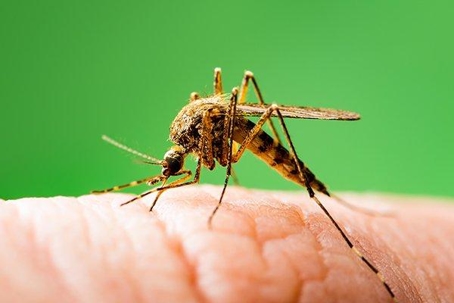What has tall legs, loves blood, and bites anything with a pulse? If you answered vampires, you wouldn’t be too far off the mark. Today we are talking about South Carolina’s most obnoxious pests: mosquitoes.
Responsible for itchy summer bug bites and canceled outdoor plans, mosquitoes are a universal nuisance. What you might not know, though, is that they’re considered the most dangerous animal in the world. Let’s delve into what makes mosquitoes lethal and how you can control their populations.
Mosquito Identification Guide
Mosquitoes might earn the title for the gangliest insects in the U.S. These bloodsuckers grow between 1/10 of an inch and ½ of an inch in length, though they often appear much bigger than this because their legs are longer than their bodies. Additionally, mosquitoes have body-length wings, a nose-like mouth called a proboscis, and two antennae.
You may catch a mosquito on your skin, but you are much more likely to see these pests airborne and only feel their bites later. Mosquito bites are quick and initially painless, but they soon become incredibly itchy and can stay itchy for over a week.
Why do mosquitoes bite? When female mosquitoes are looking to lay eggs, they rely on the nourishment from animal blood to reproduce. So not only are mosquito bites annoying, but they’re also a sign that more larvae are coming soon.
It would be bad enough if mosquitoes ruined a fun night outdoors, but that’s not what makes them dangerous. Mosquitoes can vector several lethal pathogens. Common diseases that mosquitoes transmit include West Nile virus, malaria, and Zika virus. Although these diseases are more common in continents like Africa, there were almost 50,000 cases of mosquito-borne illness in the United States in 2016. With their high reproduction rate and swift bloodsucking capabilities, mosquitoes are bad news.
Temporary Mosquito Relief
When faced with an influx of mosquitoes, homeowners sometimes resort to DIY tips and internet tactics to ward off these disease-ridden pests. Some of these tactics work in the short term, others are completely ineffective. Tactics that work to ward off mosquitoes include:
- Soak up standing water. Mosquitoes need water to live like any other organism; if you remove standing water around the house, including puddles and in gutters, your house is less inviting to both mosquitoes and other pests.
- Mow the lawn. Mosquitoes like to nest in cool, green spaces, so tall grasses and foliage make the perfect homes while the sun beats down. Tending to these spaces will disrupt their hiding spots and make your home less homey for them.
- Put up mosquito screens. You can’t screen the entire lawn, so this won’t keep them away from your property, but you can enjoy your porch or balcony while you wait for other prevention tactics to take effect.
Among the less effective tips on the web, citronella candles and tiki torches do very little to ward off mosquitoes. Sure, these pests might avoid the smell of citronella or the smoke from the torches, but they will still nest in your trees and grasses and come out to feed the moment you walk to your car or around the house.
Permanent Mosquito Relief
These DIY options for mosquito control aren’t sustainable. The only way to say goodbye to these pests for good is with help from the local pest control experts at The Original Bugman Pest Elimination, Inc. We use state-of-the-art pesticides and sprays around your entire property, treating both your home’s exterior and your garden, trees, and grasses to kill these pests and keep them away. We also lay mosquito traps near pest hotspots, including trees, gutters, and birdbaths, capturing the critters and ensuring they can’t reproduce.
With our top-notch pest control plan and quarterly or monthly checkups, the technicians at The Original Bugman Pest Elimination, Inc. will give you back your health, peace of mind, and fun summer nights. Contact us today, and let’s say goodbye to mosquitoes together.
Schedule Your Free Inspection
Complete the form below to schedule your no-obligation inspection.

